
News • Research into myocardial fibrosis
How air pollution may damage the heart
Using cardiac MRI, researchers have found that long-term exposure to air pollution is associated with early signs of heart damage, according to a new study.

Harmful substances in the soil, water and air also endanger people's health. In recent years, environmental medicine has been increasingly concerned with the consequences of climate change – in particular, rising temperatures and water shortage are causing many new medical problems.

Using cardiac MRI, researchers have found that long-term exposure to air pollution is associated with early signs of heart damage, according to a new study.
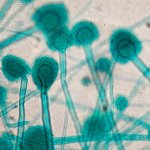
The rise of pathogenic fungi is a real concern and is being driven by climate change. A new study predicts significant spread of certain fungal pathogens in Europe fuelled by rising temperatures.

A new analysis of commercial IV fluid bags reveals that they often contain microplastics that, upon infusion, would enter the recipient’s bloodstream and potentially cause negative health effects.

Environmental factors such as low temperatures and carbon monoxide levels in the air have long been underestimated as risk factors for triggering a heart attack, new research suggests.
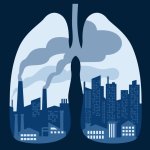
Exposure to air pollutants (PM2.5 and PM10) is associated with an increased risk of persistent long-Covid symptoms, partly due to its impact on the severity of the acute infection, a new study shows.

Nanoplastics are not only bad for the environment: A new study has shown that minuscule particles of plastic which enter the body also can impair the effect of antibiotic treatment.
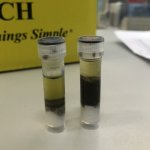
Wastewater treatment fails to kill several human pathogens, such as Listeria or E. coli, when they hide out on microplastics in the water, according to a new study.

“Evidence is mounting that pollutants in soil as well as in water may damage cardiovascular health,” find the authors of a new publication, which advocates the need for more sustainability.

Due to climate change, diseases such as West Nile fever reach European countries. With the help of AI and math, institutions can prepare for new infections in the changing climate, new research shows.

Metabolic disorders, renal failure, UTIs, sepsis, poisoning: The higher temperatures climb in summer, the more people are hospitalized, a study shows - with some groups being more at risk than others.

Holding a mobile phone close to the head for an extended amount of time has long been connected to brain cancer. Now, a new study found no hints for an increased risk.

Heat waves are becoming more common due to climate change. Researchers in Cologne explore what this might mean for the effectiveness of medication.

Heat islands found in many European cities have a clear impact on human mortality risk, comparable to air pollution. A new study has produced the first cost estimate of this impact.

A remarkable collaboration for planetary health: The Institut Pasteur and the University of Tokyo want to establish a joint institution dedicated to addressing human and environmental health research.
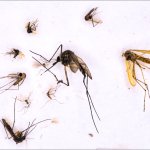
Environmental changes may reduce the diversity of mosquitos, but bring about a greater abundance of viruses, scientists from Charité in Berlin in cooperation with Leibniz-IZW find.

Heatwaves, wildfires, flooding: effects of climate change will further exacerbate breathing difficulties for millions of people living with lung conditions, new research finds.

Can per- and polyfluoroalkyl substances (PFAS) increase the risk of breast cancer? A new study by US researchers examines the effects of the so-called “forever chemicals”.
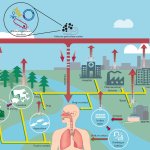
Curbing levels of harmful air pollution could help reduce antibiotic resistance, according to the first in-depth global analysis of possible links between the two.

Heat waves, cold snaps and high levels of fine particulate pollution could raise heart attack risk, according to a new study, which highlights one especially dangerous combination.